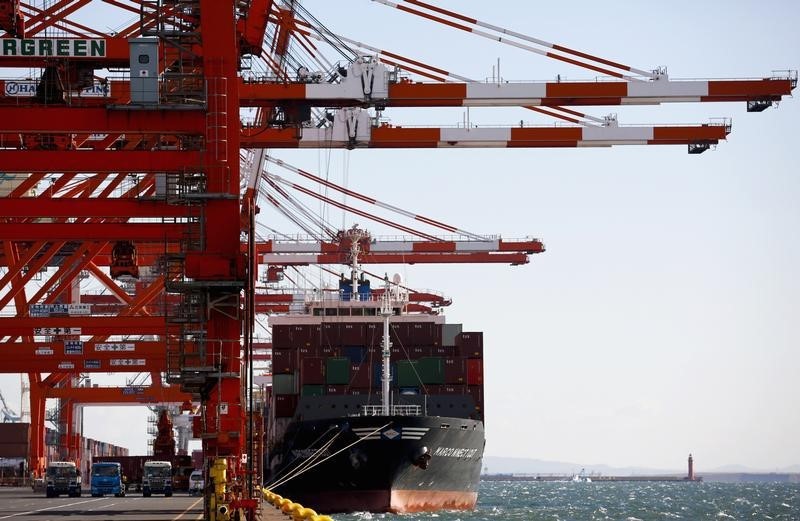By Tetsushi Kajimoto
TOKYO (Reuters) - Japan's current account surplus shrank for a fourth straight year to its smallest on record in 2014 in a worrying sign a bulging trade deficit is hurting the balance of payment, complicating Tokyo's efforts to rein in a massive public debt.
Some analysts, however, expect a reduction in the fuel import bill amid a collapse in global oil prices could help narrow a persistent trade gap and boost the surplus on the current account.
"Trade deficits caused a smaller current account surplus. But given a declining trend in trade deficits due to cheaper oil prices, I expect balance of payments to expand this year," said Koya Miyamae, senior economist at Nikko SMBC Securities.
In 2014, Japan's current account surplus fell 18.8 percent to 2.6266 trillion yen (£14.5 billion), shrinking for a fourth straight year, reflecting bulging trade deficits, Ministry of Finance data showed on Monday.
This was the smallest surplus in comparable data available from 1985.
The narrowing surplus has raised concerns in some quarters that a persistent trade deficit may tip the current account into the red over the medium term.
Such an outcome could see Japan starting to chip away at its vast pool of domestic savings, increasing the need to rein in its ballooning public debt which at over twice the size of its economy is the worst in the developed world.
"It's hard to foresee the future trend of current account as it is influenced by various factors such as currencies, crude oil and interest rates," said a finance ministry official.
The trade deficit grew 18.1 percent to a record 10.3637 trillion yen in 2014, the MOF data showed.
The trade deficit was underpinned by record imports, partly led by Japan's heavy reliance on liquefied natural gas imports to make up for the shutdown of nuclear plants for safety checks after the 2011 Fukushima crisis.

Still, a record primary income surplus, which measures profits from investment abroad, worth 18.0712 trillion yen in 2014, helped offset the trade gap, the data showed.
For December alone, Japan posted a current account surplus for a sixth straight month, helped by income from overseas investments and a narrowing trade gap due to a weak yen and lower oil prices.
The surplus of 187.2 billion yen was below the median estimate of 358.0 billion yen in a Reuters poll of economists. It followed a surplus of 433.0 billion yen in November.